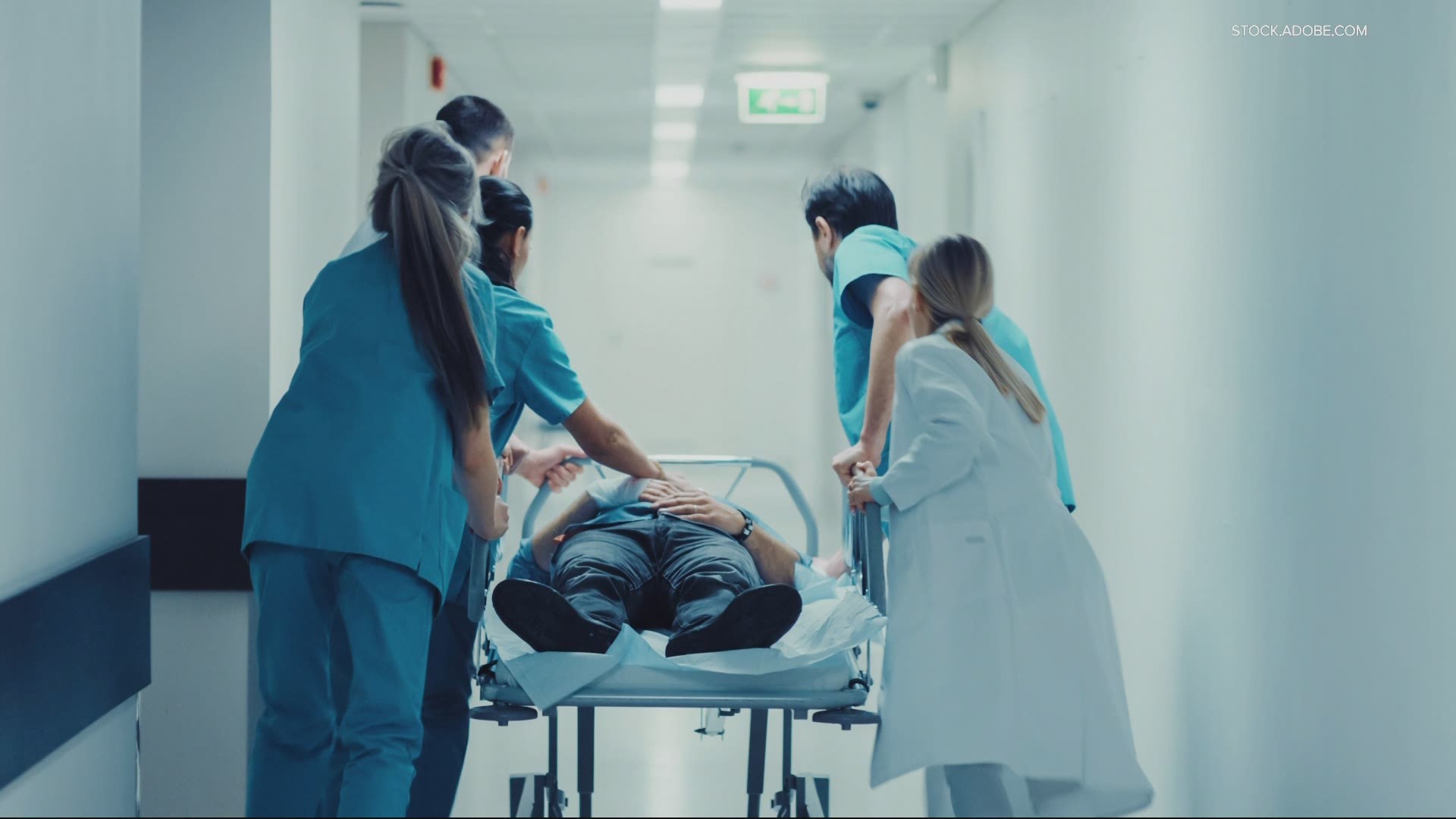VANCOUVER, Wash. — Hospital emergency departments in Oregon have been overloaded with patients since spring and hit a high point last week. At PeaceHealth Southwest Washington Medical Center, it's slowly starting to improve, but emergency rooms are still busy.
"We’re still quite crowded in the hospital and my understanding is a lot of the hospitals in the area are still quite crowded, but doing better than we were last week for sure,” said Dr. Jason Hanley, medical director of the hospital's emergency department.
Hanley said he sees a few reasons for the crowds.
First: People who avoided getting medical care during the pandemic to avoid clinics and hospitals are coming in now, often in worse condition.
Second: Some health care workers — nurses especially — are retiring or moving on from hospital settings after the stressful period of the pandemic.
Peacehealth Southwest Washington Medical Center’s emergency department went from seeing an average of 167 patients each day in March to 209 each day in June.
RELATED: Oregon's sickest COVID-19 patients are not vaccinated
The heat wave in late June and Fourth of July pushed things over the top.
The hospital's ER saw 234 patients on June 28 and 213 patients on June 29. On the Fourth of July, 212 people came to the ER for help, with 236 checking in the day after.
“It's really difficult for us because we know these people need care we know they're waiting a long time, and in this part of the country waits like this are unheard of,” said Hanley.
The PeaceHealth system is not alone. Last week, Oregon Health and Science University, Legacy Health, Providence Health & Services and Kaiser Permanente put out a joint statement asking everyone to "check in with primary care providers about your urgent health care needs or visit the nearest urgent care clinic, and reserve the emergency room for true emergencies."
Hanley said he agrees with the joint statement and thinks people getting care sooner will be better for their health and the hospital system.
“Make sure you’re in touch with your health care providers, your primary care physicians when you start feeling like you’re ill and don’t hold off. But at the same time don’t hesitate to come see us in the hospitals if you need us.”

